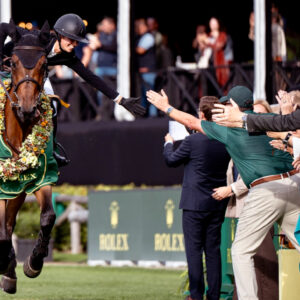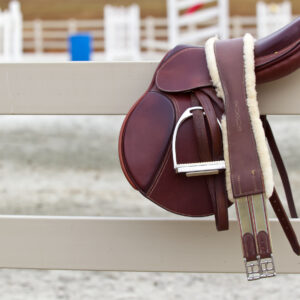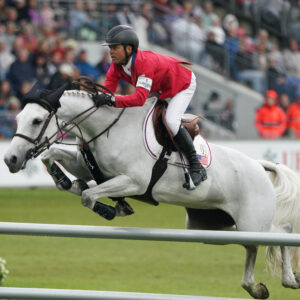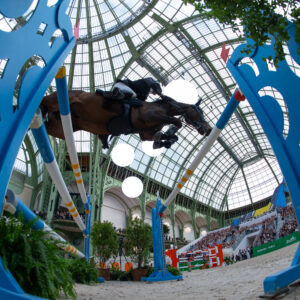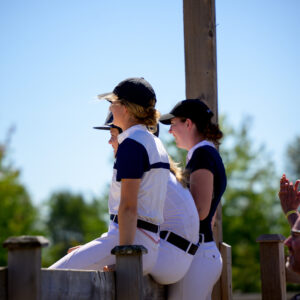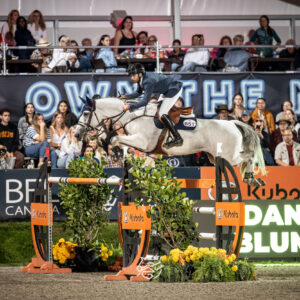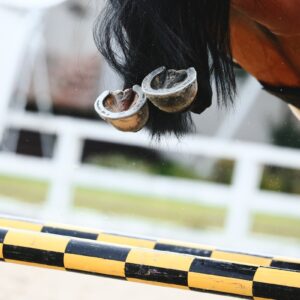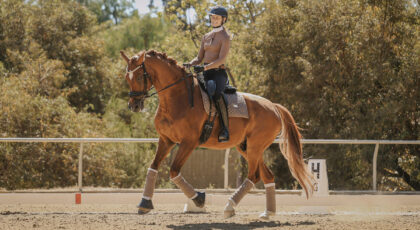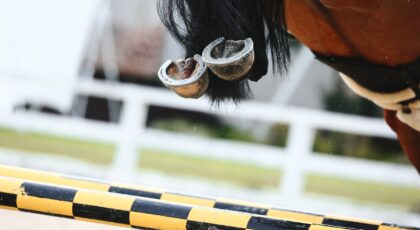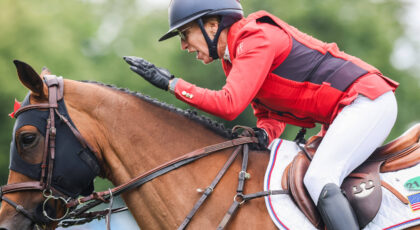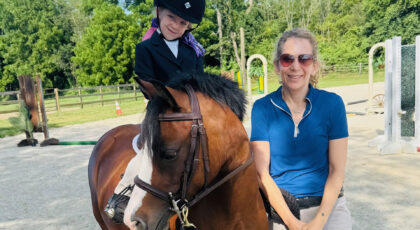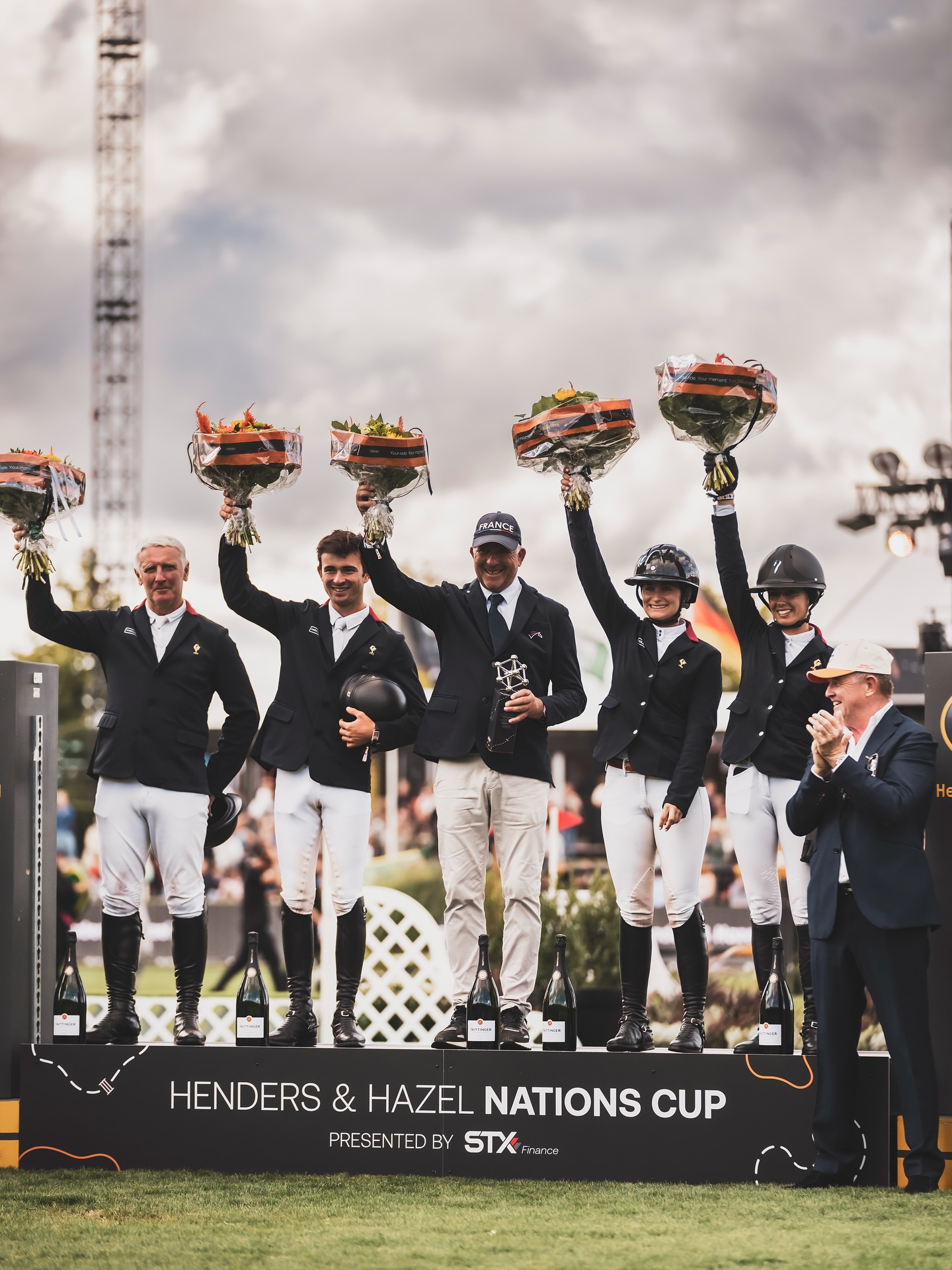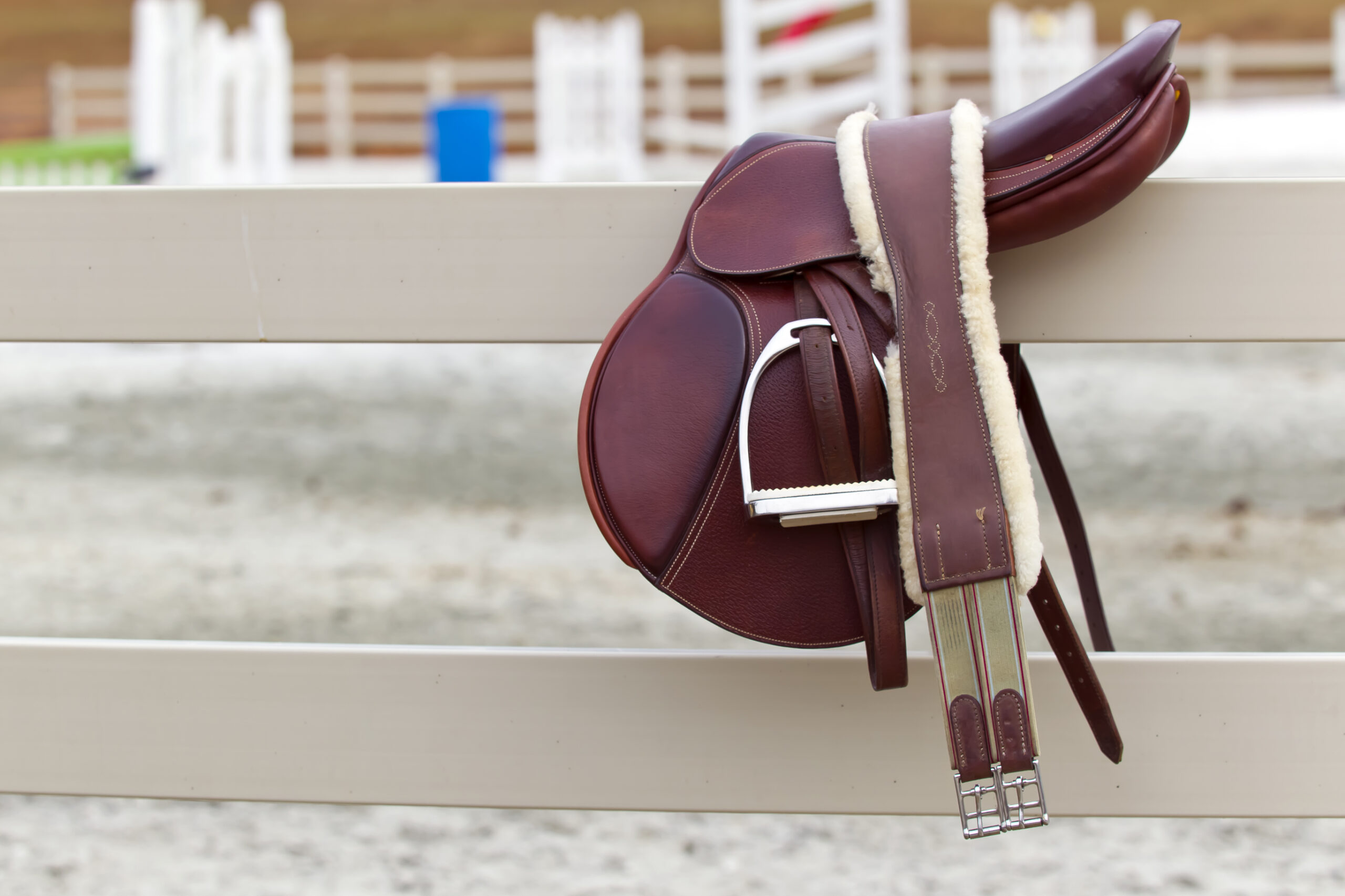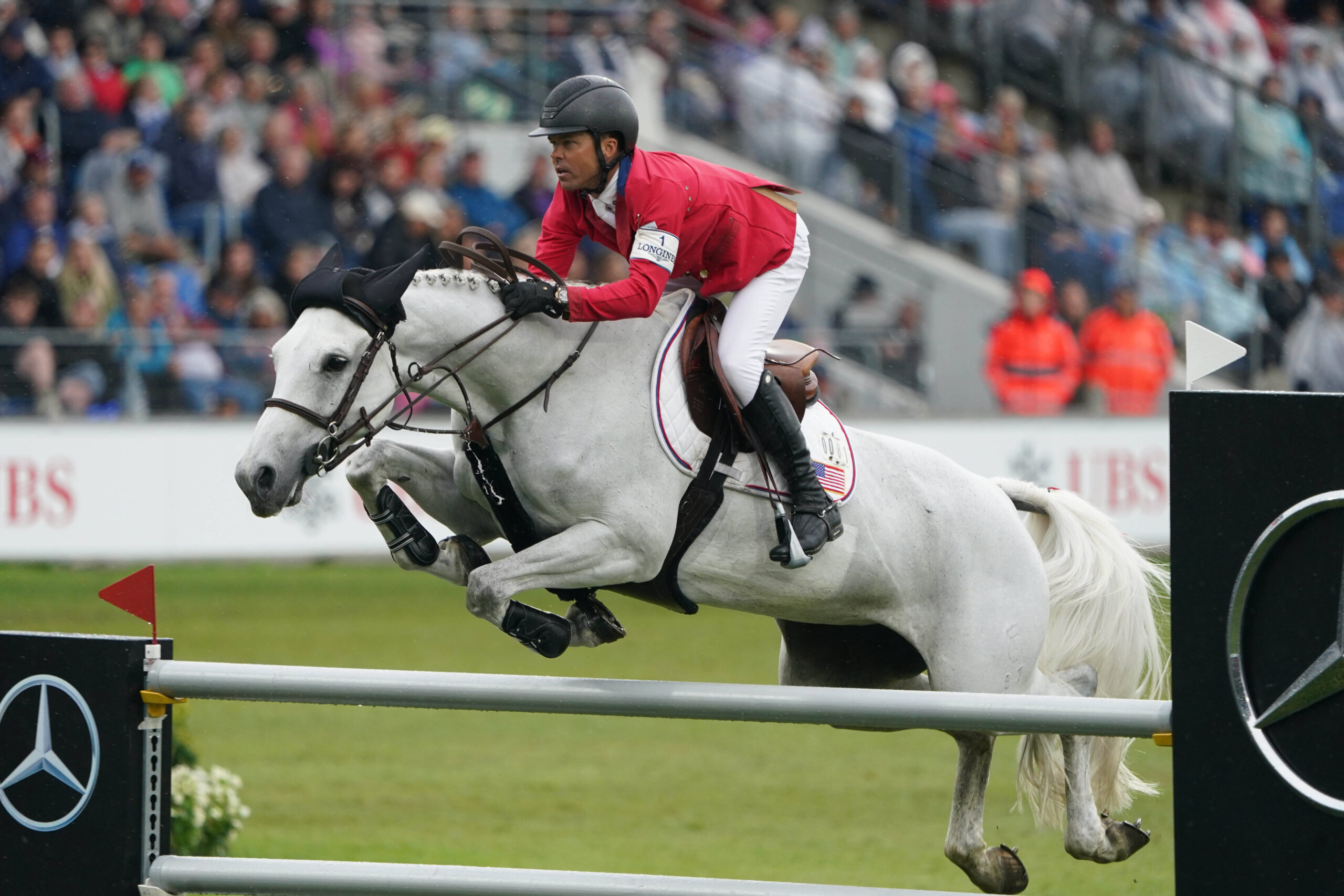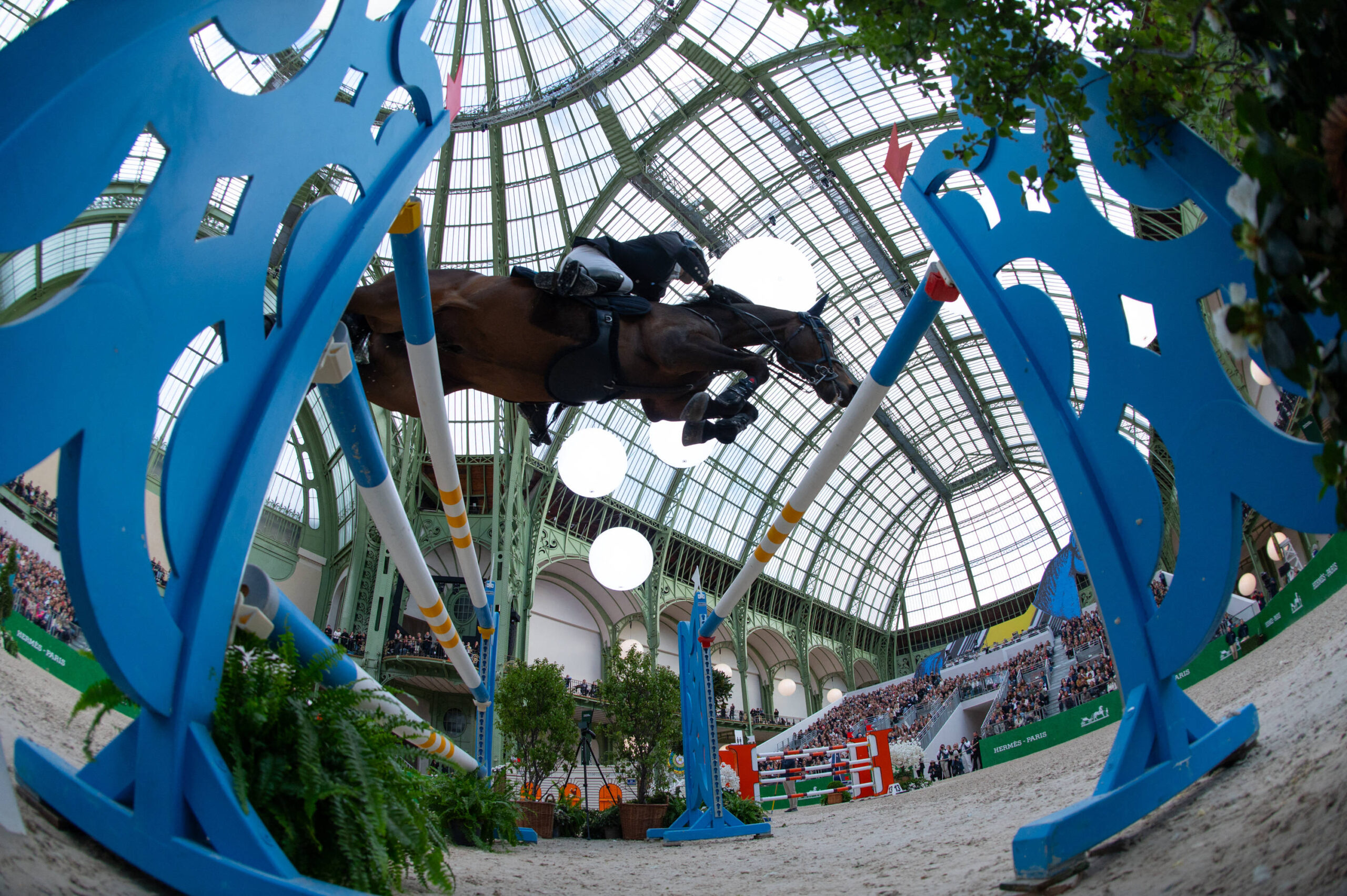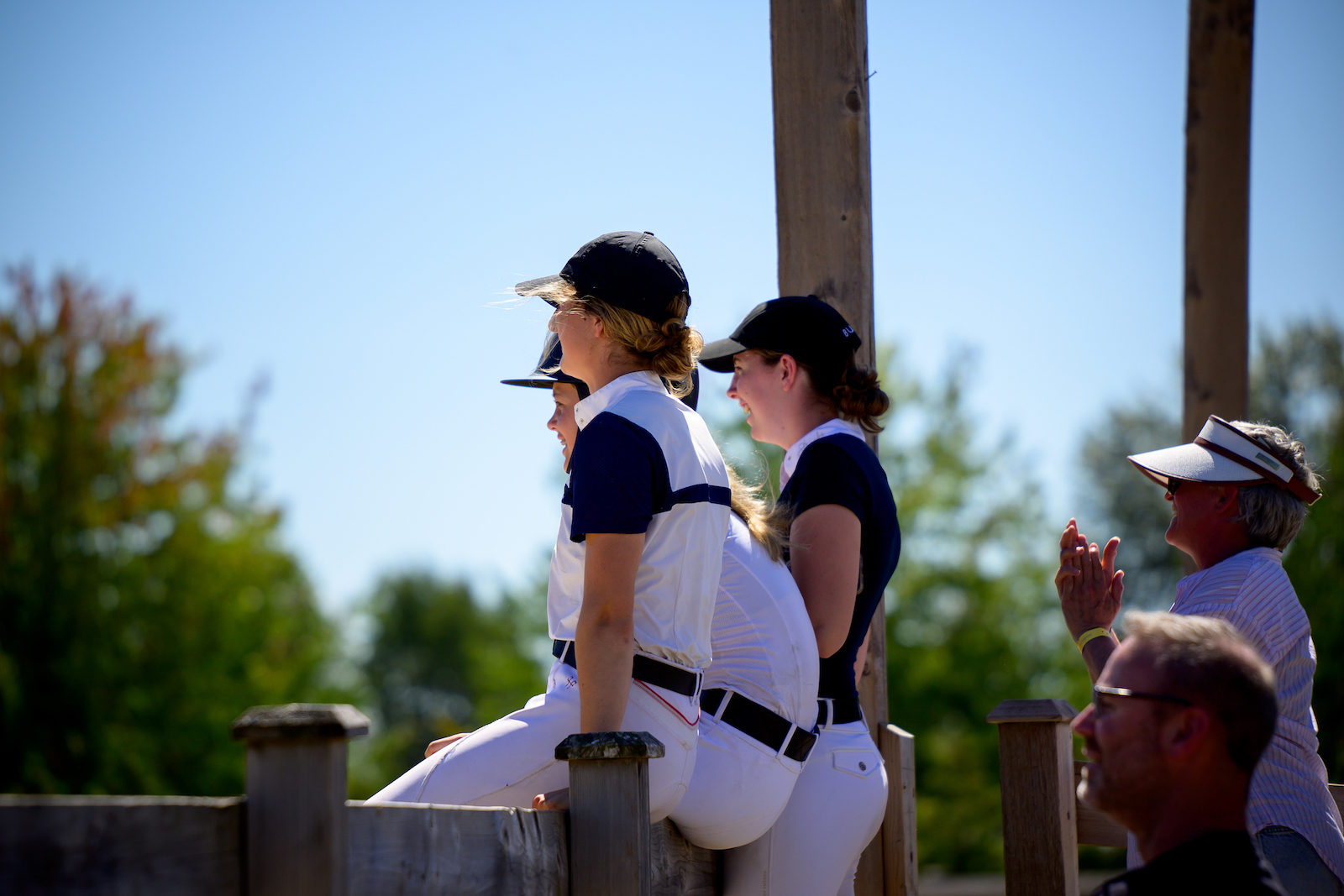Dealing with anxiety at a show, or in any context for that matter, requires the effective application of certain skills. As much as many of us would love a quick fix for our nerves in the heat of competition, the harsh reality is that the best solution for show ring nerves is found in honing and practicing some essential skills at home, long before we need them.
Common advice for riders dealing with show nerves includes engaging in pre-competition routines, setting realistic goals and expectations, using visualization, avoiding negative or destructive thinking patterns, focusing in the present on what you can control, breathing, and distracting yourself with positive interactions (supportive friends, etc.).

©Flickr/FiveFurlongs
These are all great suggestions; however, the challenge is to motivate ourselves to actually engage in these behaviors when there is a pit in our stomachs, we can’t breathe, and we feel like throwing up. That is where the practice of foundational mental and emotional skills comes into play.
There are three fundamental skills that every rider should strengthen:
- The ability to focus their attention.
- The ability to accept and tolerate negative emotional experience.
- The ability to recall and access positive adaptive thoughts, feelings, experiences and/or states of mind.
Like any set of skills, there are some riders that are naturals. They seem to apply these skills more or less effortlessly. It is important for the rest of us to remember that these are skills that can be learned and developed. We would never take a horse to a competition for which we didn’t train them appropriately. We need to provide ourselves the same benefit.
“The challenge is to motivate ourselves to actually engage in these behaviors when there is a pit in our stomachs, we can’t breathe, and we feel like throwing up. That is where the practice of foundational mental and emotional skills comes into play.”
Our ability to focus is governed by our ability to sustain our attention, and challenged by both internal and external distractions. When we are anxious, we become more easily distracted and have a heightened sensitivity to both external “threats” and internal negative thinking. By strengthening our ability to focus our attention and sustain that focus over time, we can help to guard against the distracting impact of anxiety. This is a powerful tool for changing our experience in high demand situations like the show ring.
Often we fall victim to “the fear of the fear”; that profoundly negative pattern of thoughts and feelings that arises when we first notice that we are getting nervous; that, “here we go again” feeling. When we fear, or actively fight our anxiety, we actually make it worse. When we understand our anxiety for what it really is, a transient (albeit uncomfortable) feeling state, we are empowered to tolerate it rather than fight it, which most often results in it drifting to the background of our experience. Practicing being more tolerant of our emotional experience, without reacting to or acting on those feelings, helps to build our tolerance and confidence that we will not be overwhelmed by them. This is equally true for other strong negative emotions such as anger, frustration, disappointment, etc.

(©Alex Carlton)
“Often we fall victim to ‘the fear of the fear’; that profoundly negative pattern of thoughts and feelings that arises when we first notice that we are getting nervous; that, ‘here we go again’ feeling. When we fear, or actively fight our anxiety, we actually make it worse.”

©Alex Carlton
Finally, we need to focus on solutions. In other words, we need to identify how we want to think and feel, rather than what we don’t want to think or feel. Then we can bring those thoughts and feelings to the present. We do this naturally whenever we recall a fond memory and feel all warm and fuzzy inside. What we often don’t realize is that we can practice drawing on a multitude of experiences in our lives to provide us with a wide variety of resource-filled feelings. We can all recall moments in our lives where we felt confident, competent, calm, courageous, etc. These do not need to be in our riding experience in order for us to use them to help us with our nerves. The trick is to practice remembering these moments and the positive feeling states associated with them. The more we practice, the easier it becomes to “call these feelings up” when we want or need them.
If we have practiced all of these skills then we will be well prepared to deal with our nerves the next time they show their ugly face. Sounds simple, just not easy. Accept that you feel anxious, call up a more adaptive feeling state or mind set, and then focus your attention and action on the many good and helpful strategies described above.
About the Author
Paul T. Haefner, Ph.D. is the founder of Riding Far, which provides a wide range of sport psychology consultation services to riders, instructors, and trainers. Dr. Haefner is a licensed clinical psychologist in private practice in Northern Virginia with more than 25 years of professional experience. An avid equestrian, Dr. Haefner has combined his love for horses and lifelong equestrian experience with his knowledge of human psychology in order to help people raise their level of performance and overcome many of the challenges that arise when participating in equestrian sport.


 January 28, 2016
January 28, 2016 






